Pope Francis’ Secret Peace Mission in the European Stronghold of Illiberalism
Pope Francis meets the poor and refugees in St Elizabeth’s Church. (Photo: Merényi Zita/Magyar Kurír)
(ANALYSIS) BUDAPEST — Pope Francis’ recent apostolic journey to Hungary (my home) was at once exciting and disconcerting. A papal visit is always exciting, and like other Christians in Hungary (Catholic and not), I was encouraged by the Holy Father’s presence among us. Conversely it was hard not to be worried about the apparent imprimatur that might be given to the “political Christianity” championed by Prime Minister Viktor Orbán’s Fidesz government.
The latter has very little to do with “living faith.”
Orbán’s government claims to be inspired by Christian values, but according to Transparency International, corruption levels in Hungary are the highest in the EU; despite taxpayer billions paid to various denominations, only 10% of the population attends church on Sundays — not significantly higher than the “declining” Western European countries used as a propaganda foil in Hungarian government messaging.
Our publicly funded, newly refurbished and painted churches are typically empty. It would be hard to think Francis had come here because he sees Hungary as a genuine beacon of Christian renewal.
While traveling with the Vatican Press Corps, though, I think I got a better idea what the leader of the Catholic Church’s trip to Hungary was about — especially during the press conference held on the return flight to Rome.
Hungary has a characteristic that other European countries can’t offer the Vatican: a living connection with the Russians. Orbán has close ties with Vladimir Putin. Hungary is a safe space for Russian spies operating in Europe. Orbán blocks EU sanctions against Russia, and Foreign Minister Peter Szijjártó has made multiple friendly visits to Moscow since February 2022. That Hungary presents an open channel of communication with the Kremlin has come in handy for the Vatican — which is set on a peace mission to resolve the Russia-Ukraine conflict.
The pope’s visit to Hungary was in some ways a typical one. His Holiness came, saw and conquered: He captured many Hungarian hearts with his charisma. Besides the mandatory events — meeting political leaders, diplomats, bishops and others — there was an occasion when he stopped his convoy to greet people kneeling in prayer on his route.
International commentators were surprised the pontiff arrived in Hungary for a second time in 18 months. However, his previous September 2021 visit was for a few hours to attend the closing Mass of the International Eucharistic Congress in Budapest. That brief encounter left Hungarians feeling shortchanged. This time, Francis more than made up the deficit.
Pope Francis meeting with the mayor of Budapest, Gergely Karacsony, and family. (Photo: Matteo Bruni, Holy See Press Office)
Beyond the official program, Francis also met one of Orban’s major rivals, the mayor of Budapest, Gergely Karacsony. Pope Francis also met with refugees, repeatedly targeted by hate campaigns from Orban’s government. Sources familiar with Vatican diplomacy think that such a private meeting shouldn’t be underestimated. It sends a message: the pope, functioning as the Vatican head of state, is obliged by protocol to meet incumbent prime ministers and presidents, but whom he chooses to meet in private is his affair.
The international press often refers to Hungary’s primate cardinal Archbishop of Esztergom-Budapest Peter Erdo as a likely candidate in the next conclave, and he is a leader of the international perception of the Hungarian church. Domestically however the cardinal has a rival: Bishop Peter Veres of Gyor, who in 2015 took over presidency of the Hungarian Catholic Bishops’ Conference. Veres is a great deal closer to the government and an enthusiastic supporter of Viktor Orban.
Pope Francis’ 2021 visit was arranged by Cardinal Erdo, the main organizer of the International Eucharistic Congress, but Bishop Veres was in the lead for 2023’s occasion. He made use of it: Erdo was pushed firmly into to the background except for his role as celebrant of the closing Mass — Pope Francis being too tired to consecrate the elements.
In contrast with 2021, this year the church handed much of the organization to the state and in particular the government’s international communications chief, Zoltan Kovacs. Thus some Hungarian and international journalists critical of the government were excluded accreditation from the program despite timely and correct application. I would probably have been banned as well if I had tried to register on the Hungarian side. However, traveling with Pope Francis, I entered the Hungarian prime minister’s office building for the first time during my career as a journalist.
Hungary’s president, Katalin Novak, a great admirer of Viktor Orban, won something of a public relations jackpot though her appearance alongside the pope, but her behavior in advance of his arrival raised eyebrows. Two days prior, and citing the visit, she granted pardons to seven far-right terrorists who had previously thrown Molotov cocktails at the homes of left-wing politicians and beaten up journalists. The fact that her doing so coincided with the exclusion of a respected photojournalist from accreditation on grounds of “protecting national security” was jarring.
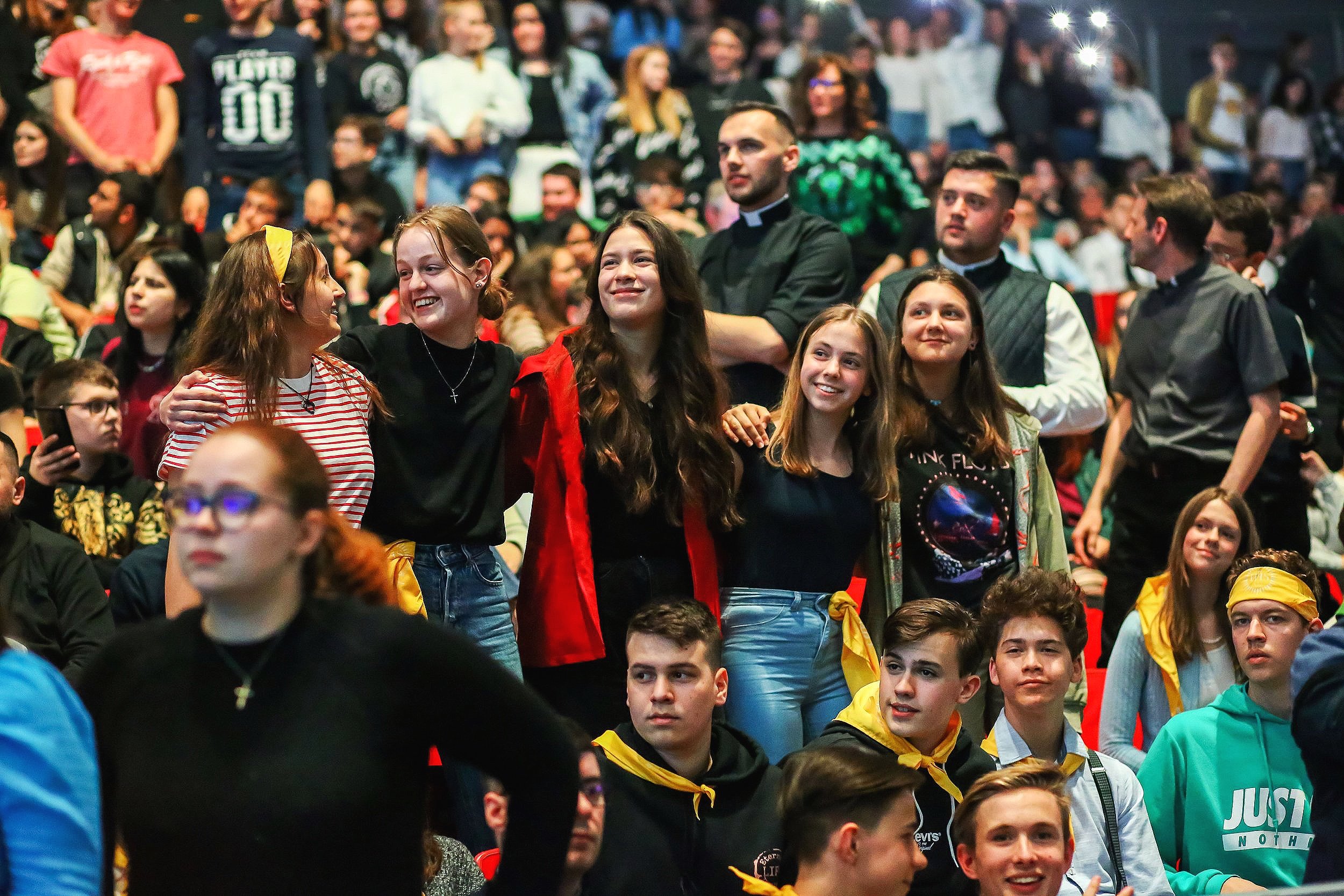
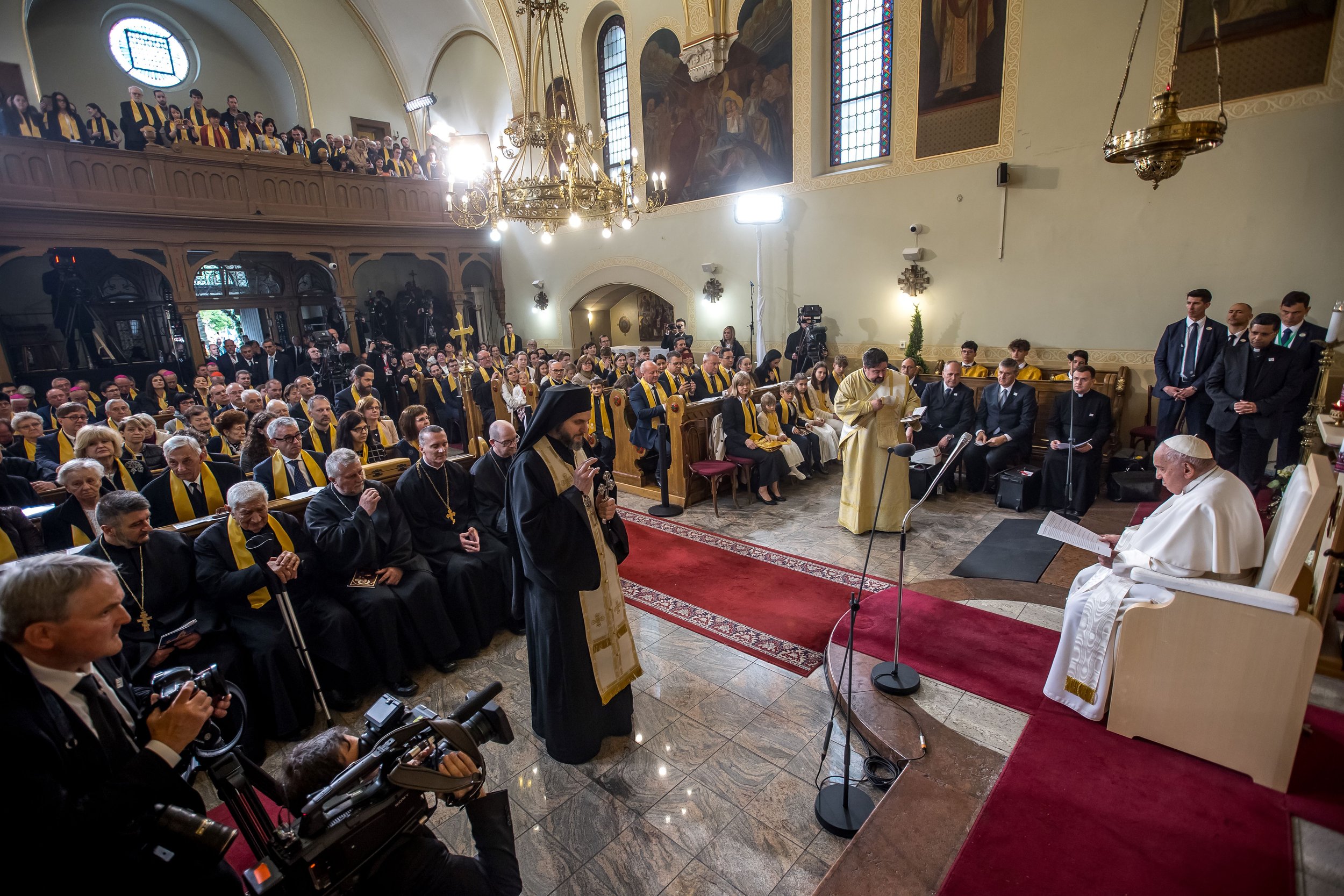
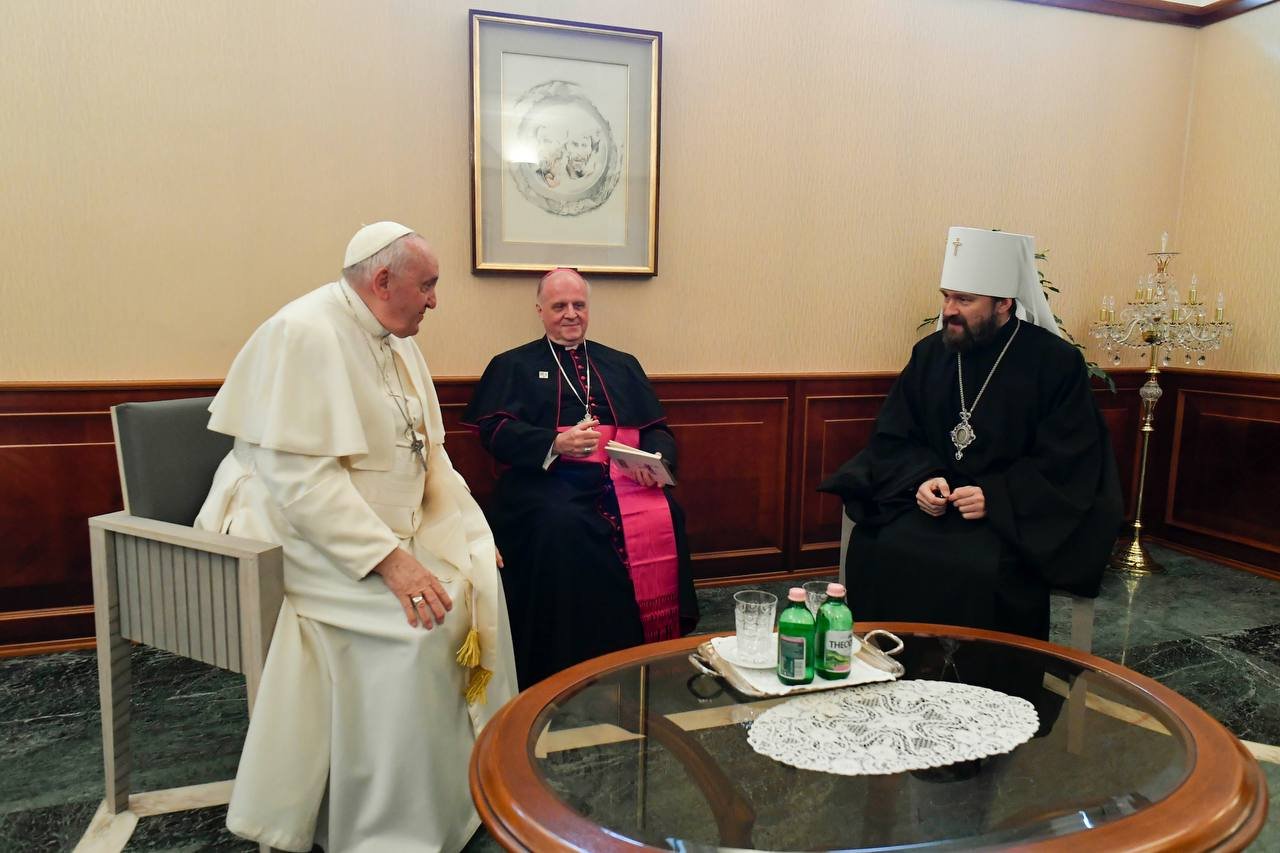
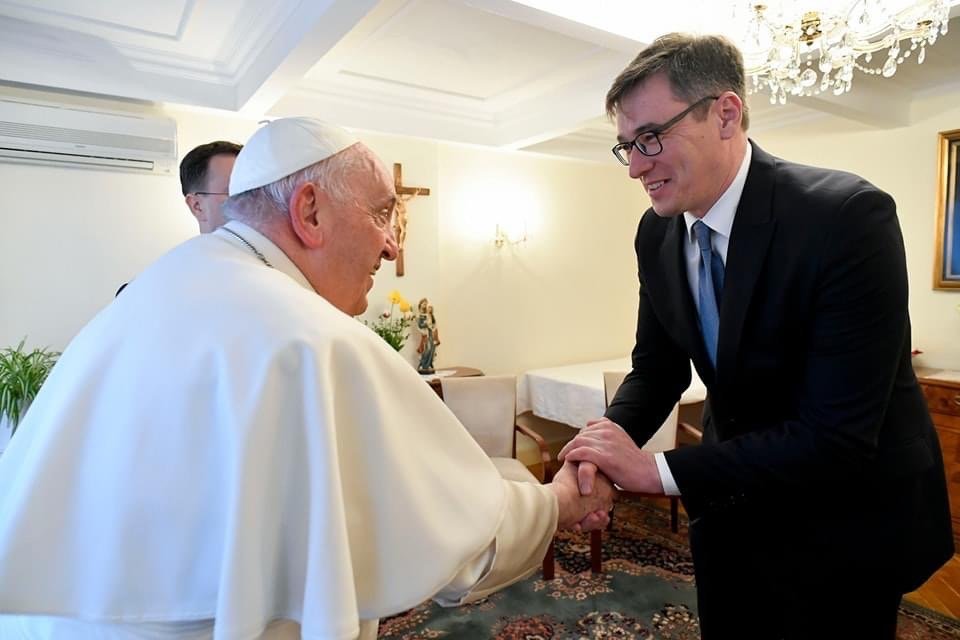
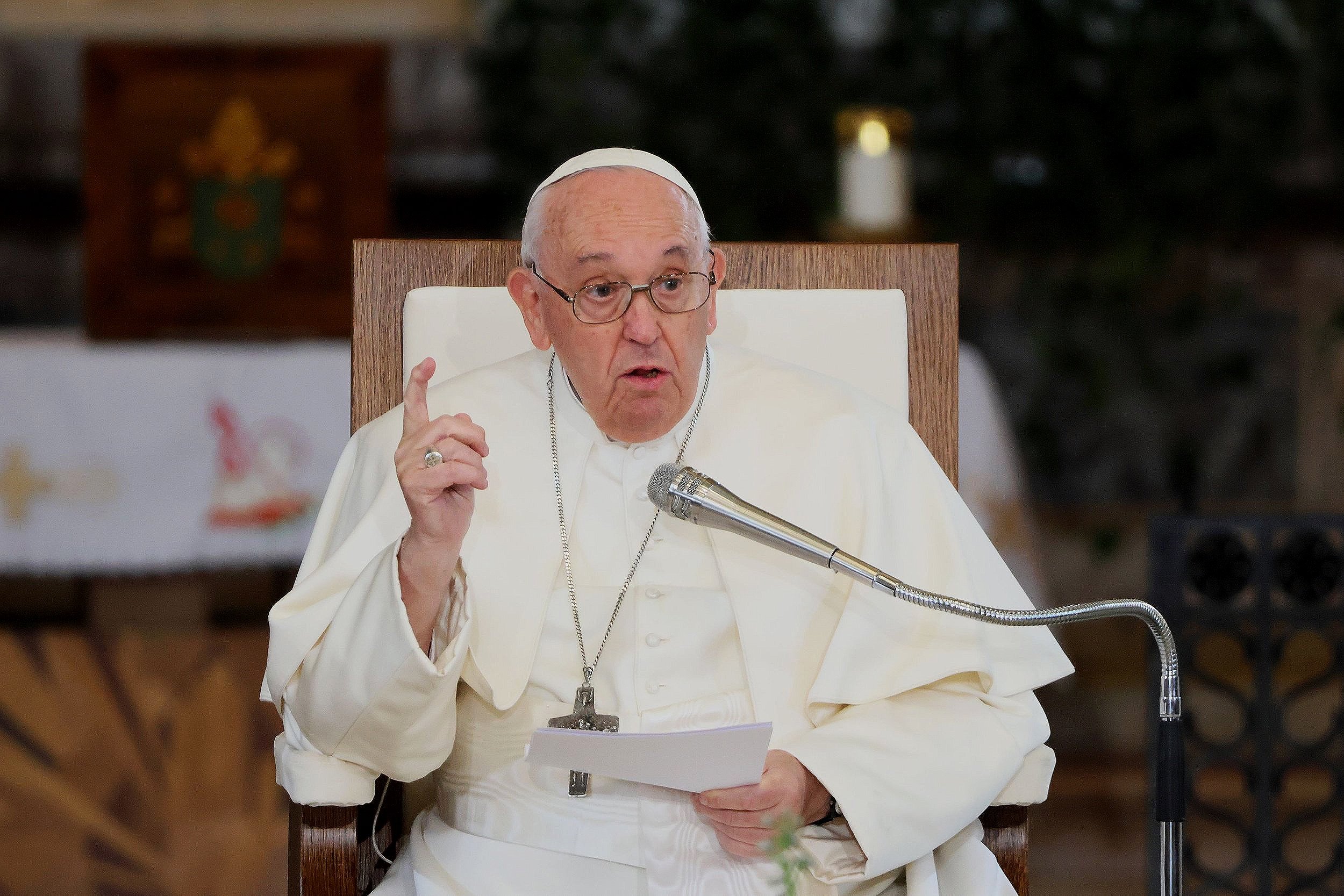
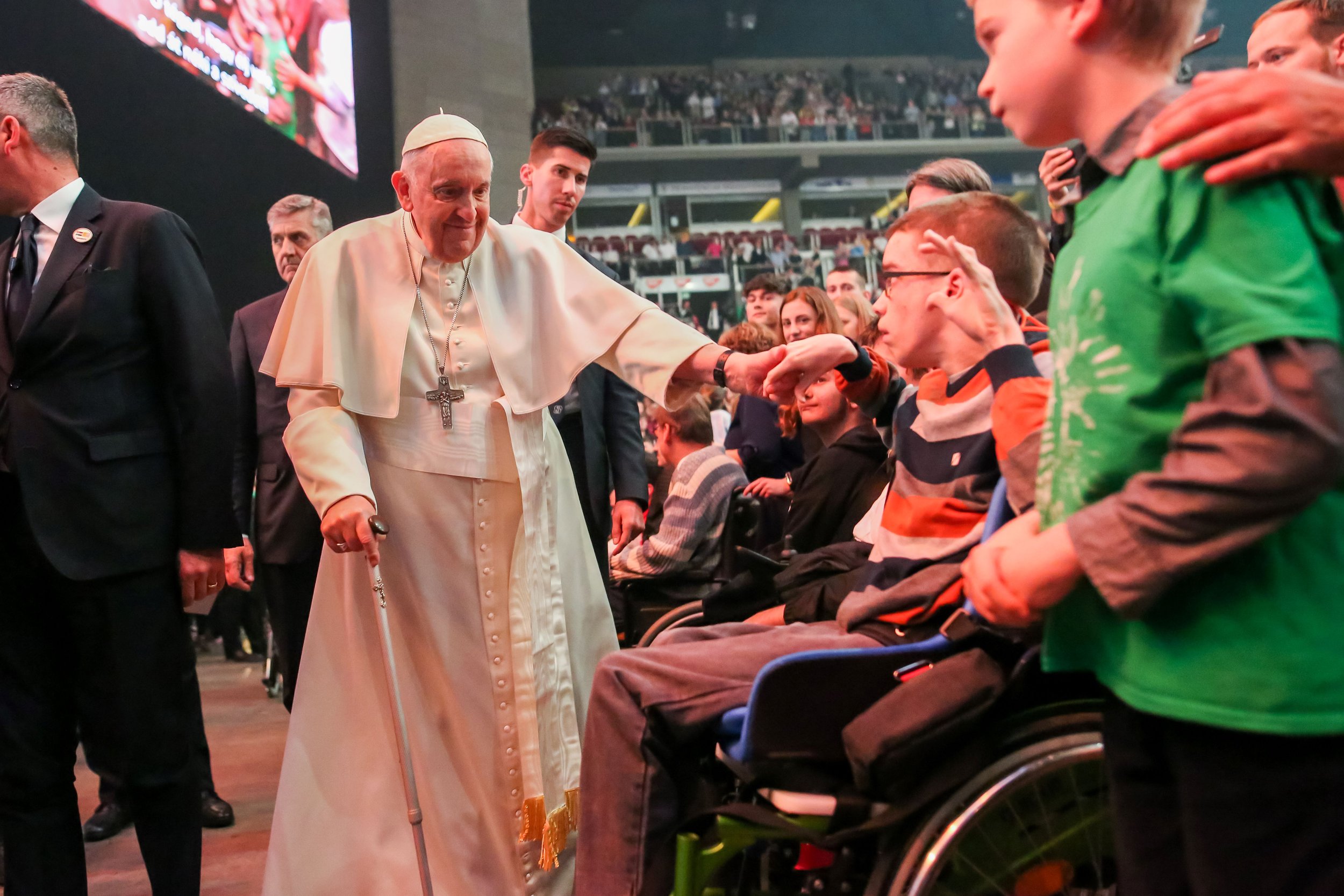
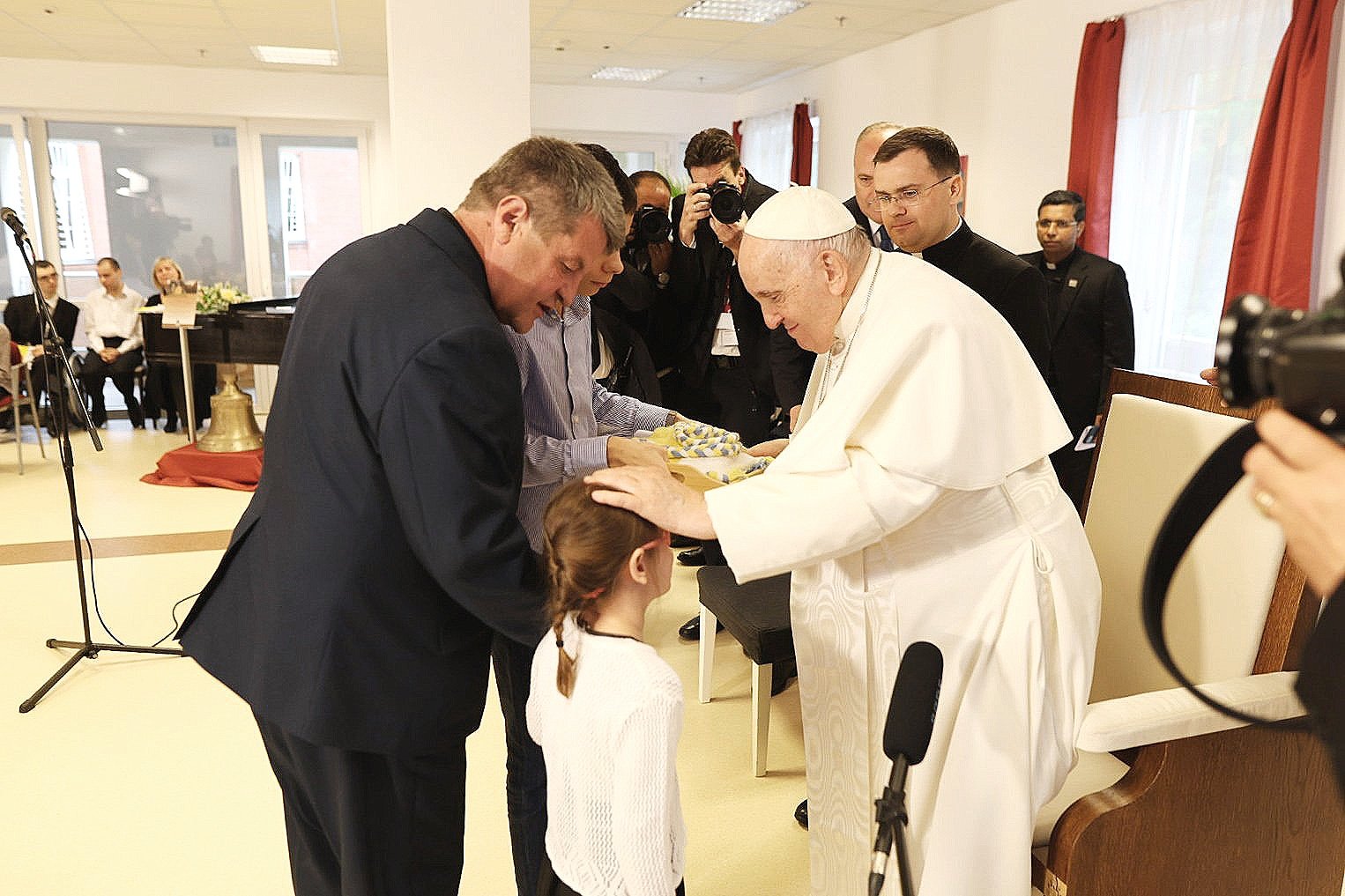
In her greeting addressed to the Holy Father, Novak referred to Hungary and the Vatican as allies. According to her, for example, both states consider protection of human life and preserving the influence of Christian faith in the public sphere as key priorities.
Novak said that’s why Hungary’s Fundamental Law declares the life of the fetus is protected from conception in Hungary. “We (Hungary and the Vatican) protect human life together,” Novak said. She skipped over the fact that in Hungary, this pro-life principle expressed in the constitution is dead letter. Hungary has one of the most liberal abortion laws in Europe, and the government has not restricted access to abortion services post-2010.
Before the pope’s visit, the government — fearful that too few people would show up to the closing Mass — pulled out a big gun: Zsolt Bayer, a Fidesz publicist who is not only a founder member of Viktor Orban’s party but its leading propagandist and a foul-mouthed antisemite.
When it was in Orban’s interest, Bayer peddled the most vulgar insults of Pope Francis. In 2016, Bayer said the pontiff was “either a demented old man who is completely unsuitable for the papal post, or a scoundrel.” A year later, on a TV show, he referred to the pope as having “a migrant background,” being an “an Argentine lib” and also being “a righteous liberal, a gender-believing idiot.”
A week before His Holiness’ visit, Bayer — who converted from Lutheran to Catholic in 2018 — called on Orban’s supporters to attend Pope Francis’ Sunday Mass on April 30, saying that it would also have a “political message.” He delivered this call on, among other places, a TV program beside his long-time collaborator Andras Bencsik. Before the 1989/90 administration change, Bencsik published articles praising the Soviet Union in the Communist Party’s newspaper. Later he turned right-wing and became an unconditional supporter of Viktor Orban.
In 2021, Bencsik said he thought Francis’ visit was “anti-Christian.” Now, syncing with the new government narrative, his opinion has changed. On his weekly magazine, subsidized with government advertising, appeared a cover titled “Respect for Pope Francis.”
Francis had another discretionary meeting in Budapest with the mayor. Maybe it was the most important meeting of the Hungarian trip, even its main goal. It was his encounter with Hilarion, the metropolitan of the Hungarian Orthodox Church and the former foreign minister of the Moscow Patriarchate. Hilarion was previously the right-hand man of Patriarch Kirill of Moscow, himself the right hand of Vladimir Putin. Despite his transfer to central Europe — supposedly for being insufficiently enthusiastic about the invasion of Ukraine — Hilarion is thought to remain personally close to his old boss.
The Vatican very much wants to be a mediator in creating peace, putting an end to Russia’s aggression, or at least limiting it. To this end, it tried to organize a meeting last year between Pope Francis and Patriarch Kirill. During a press conference on the return flight to Rome, Francis confirmed he would still desire such a dialogue. Francis suggested Jerusalem would be a suitable location.
Yet, objectively, this would not be easy to arrange, considering that during their last video conference — their only one since February 2022 — Francis took a tough stance against Kirill for supporting Russian aggression, calling him “Putin’s altar boy.” After the video meeting, the Moscow Patriarchate issued a statement criticizing Francis for making the conversation public.
During the press conference at 3,000 feet, the pope also made it clear that the Vatican’s peace mission is not just a vague desire, speaking of a very specific mission while declining to reveal details about it — except that, in the first instance, Catholics were working on the return of Ukrainian children deported by Russia and that he did not merely discuss “Little Red Riding Hood” with Metropolitan Hilarion.
Ukrainian refugee family gives testimony in St Elizabeth’s Church. (Photo: Merényi Zita/Magyar Kurír)
While the pope didn’t say more, it’s clear “something is happening.” Before leaving, His Holiness met with the prime minister of Ukraine in the Vatican. In Budapest, he met Hilarion. On his return, he met Metropolitan Antony, Hilarion’s successor in the Moscow Patriarchate’s Ministry of Foreign Affairs.
Thursday, Pietro Parolin, Vatican secretary of state, spoke about the type of peace the Vatican conceives, emphasizing the Vatican’s goal to find common ground — but one that has serious consequences for the Russian side as well.
Archbishop Paul Richard Gallagher, the Vatican’s secretary for relations with states, in late February suggested the Vatican emphasis is still on resistance and military victory, and only then peace.
“I don’t think that in this phase, peace would come to the forefront without promoting a military solution,” Gallagher said, adding that the Vatican supports Ukraine’s sovereignty and territorial integrity. Thus, according to the Vatican, a just peace would mean that the Russians withdraw from Ukrainian territory.
This Vatican approach is far from the Putin-friendly approach of Viktor Orban’s government. According to officials — as the minister leading the Hungarian prime minister’s office recently stated — peace negotiations and peace talks can be initiated without the liberation of the Ukrainian territories currently under Russian occupation, and a settlement might include Russia being able to retain territorial gains.
Balázs Gulyás is a Hungarian journalist, the founding editor of Gulyasagyu Media, and an ecclesiastical expert.



